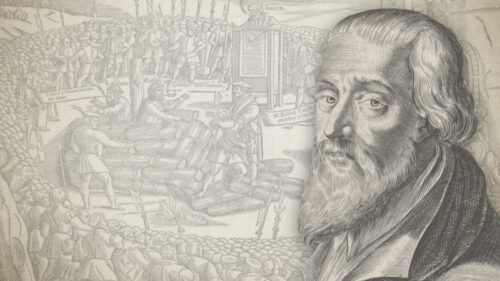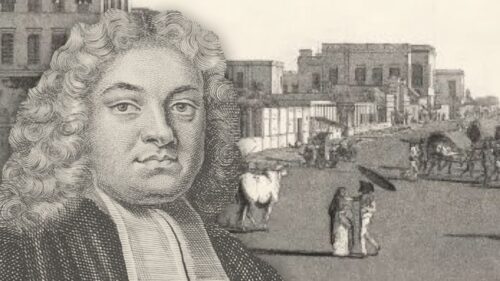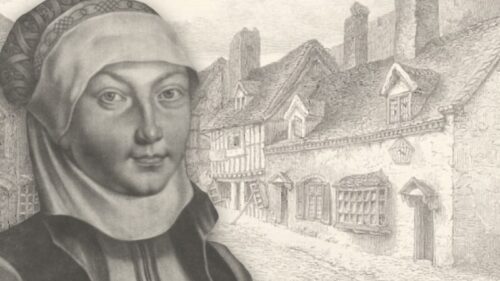-
Letter Defending William Huntington
Sir: It is understandable that one who identified himself so closely with the English Reformers, Whitfield and the Marrow Men should be criticised by Arminians. For Huntington, Arminians were Antinomians who rejected the condemning and convicting use of the law in evangelism, inviting sinners to approach God “as if they had never apostatized”. They believed that man was not totally fallen but was naturally able to make saving decisions. Huntington preached a full gospel whereas his Fullerite and Wesleyan critics taught respectively that the doctrines of grace were for believers only or to be rejected as ‘the religion of the Turks’. Contrary to adverse criticism that Huntington stood alone, he was supported by a relatively large number of Independent, Anglican and Baptist ministers. Huntington upheld…
-
Robert Oliver And The Twists And Turns Of Historical Revisionism
In July, 1988 an anonymous article appeared in the Banner of Truth magazine, surprising and shocking many readers. It was a fierce attack on the person and testimony of William Huntington, known affectionately as ‘the Immortal Coalheaver’. The article, which followed a similar attack on John Gill by Robert Oliver the previous year, was planned to start off what the BOT calls an ‘important controversy’ to warn readers against the traditional Calvinism of these men. In Huntington’s case (though Gill’s was not dissimilar) the BOT were faced with two difficulties. First, it was obvious that Huntington had the largest congregation in London during the latter part of the 18th century and was the most popular and most read Calvinistic preacher and evangelist of his day.…
-
Reflections On Some Recent Banner Of Truth Criticisms Regarding William Huntington And Avarice
The Banner critics portray Huntington as living like an Eastern Nabob in the lap of luxury. Providence Chapel paid their pastor a salary of £100 per annum at the beginning of his ministry but this was rapidly doubled. This was not an unusual amount. Rowland Hill, the only London pastor who could compete in numbers received half to a third more salary than Huntington. James Hervey (1714-1758) received £180 per year and also the profits from a farm which had been in the family for generations. In spite of his popularity, Hervey’s congregations was only half that of Huntington’s. Pastors in patronised livings, however, often received between £600 and £1,000 a year. Many Evangelical clergymen such as Moses Browne, Vicar of Olney when John Newton…
-
A Sinner Becomes A Saint: William Huntington’s Conversion
One evening, Huntington was sitting by the fireside reading his Bible when he came across the words, “At that day ye shall know that I am in my Father, and ye in me, and I in you,” John 14:20. These words were at first incomprehensible to Huntington as he had not experienced being ‘in Christ’ and being thus a new creature. “There must be some secret between Christ and those whom He will save, that I am ignorant of,” he exclaimed. As he thought on these things all his sins paraded themselves before him and all his false hope disappeared in a twinkling. Great conviction came upon him but his first thoughts were of hatred to God for putting him in such a position. He…
-
Kiffin, Knollys and Keach: Rediscovering our English Baptist Heritage
The news that Carey Publications were to publish the lives of these three 17th century Baptists filled me with a feeling of hopeful expectancy. The three Ks have aided my own understanding of the ways of God immensely and I know from my correspondents that there is an awakened, wide-spread interest in them. Michael Haykin’s book thus comes at a most appropriate time. My expectancy was dampened by Robert Oliver’s foreword in which he takes up his pet theme, Hyper-Calvinism, and back-projects it onto the teaching of Kiffin and Co., arguing that they were against it, whereas they had nothing to do with it, or rather, nothing to do with this modern controversy which is forced onto the churches, leaving havoc and destruction in its…
-
Tobias Crisp (1600-1643): Exalter Of Christ Alone
Tobias Crisp served the Lord during a time of civil war and ecclesiastical unrest. There were threats of a papal take-over in the Established Church and Amyraldianism, Arminianism, Grotianism and Socinianism were flooding into the country to water down the faith inherited from the Reformers and defended by the Puritans. Crisp found these new religions false as they did not exalt Christ. Entering the ministry as an unconverted man This ‘holy and judicious’ person, as Augustus Toplady describes Crisp, was born into a family of London sheriffs and aldermen and was educated at Eton, Cambridge and Oxford, finishing his studies by gaining a D.D.. He married Mary Wilson, an Alderman’s daughter, and the couple were blessed with thirteen children. He was ordained Rector of Brinkworth…





